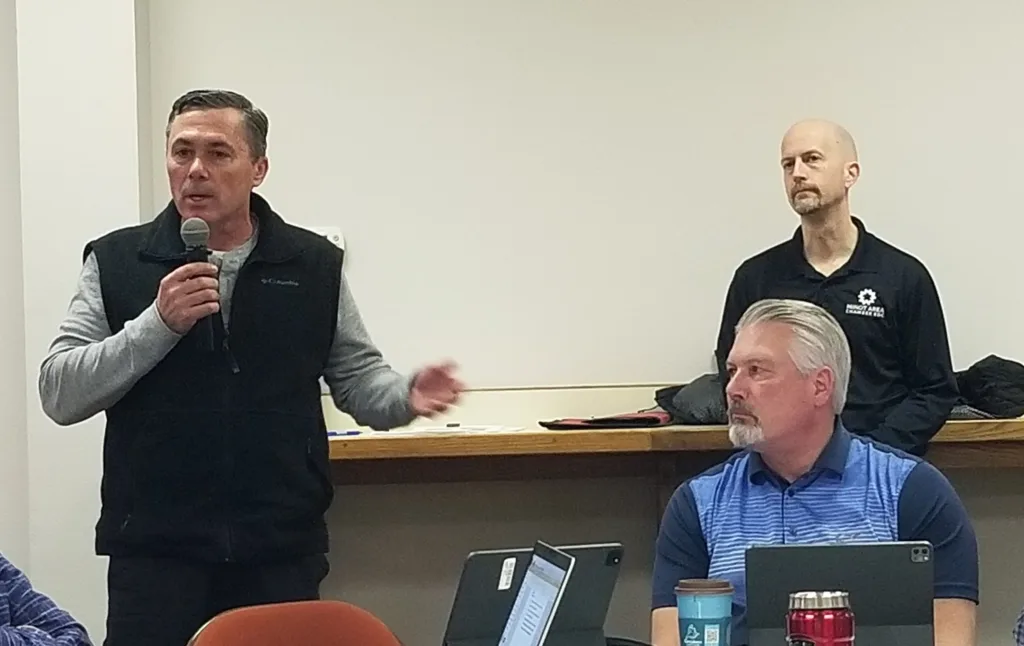

MINOT – A bill being scrutinized during the current session of the North Dakota legislature seeks to encourage large scale livestock and poultry operations in the state. Sen. David Hogue, R-Dis. 38, Minot, and Senate majority leader, explained the essence of HB 1371 during a legislative forum held at Minot’s State Fair Center.
“If you go 10 miles into Minnesota or South Dakota you will see these large-scale dairy and swine operations,” said Hogue. “We can’t do that in North Dakota because we have restrictions on ownership of farmland, sometimes called corporate farming. I don’t think that’s the correct term because this isn’t about farming. It’s about livestock operations.”
Hogue said he believed the existing restrictions that have been in place for “close to 80 years” has resulted in diminished livestock operations in North Dakota. Gov. Burgum also addressed the lack of livestock in North Dakota during his state-of-the-state message to open the legislative session.
“South Dakota passed us in swine and dairy and poultry,” said Hogue.
Hogue told those attending the forum that byproducts of the state’s ethanol plants is a “cheap source of feed” for livestock operations, called it “value added.”
“Instead of using that feed here they ship it to Texas and Arizona,” said Hogue. “There’s feeding opportunities for large scale feeding operations and the only thing holding North Dakota back, in my view, is the fact we so tightly constrict who can own a piece of agricultural land to operate these large-scale operations.”
Hogue voiced his support for the bill which has not yet been voted on by the House.
Property tax relief
The Senate majority leader also spoke about possible property tax relief, something very much on the mind of citizens throughout the state. The House, said Hogue, is focused on income tax relief while the Senate is focusing on property tax relief.
“There are seven serious proposals in the Senate to reduce property tax and, so far, nobody has pushed back,” remarked Hogue. “All of us want it. I’d say property tax relief will be a combination of bills.”
The issue is a difficult one, explained Hogue, due to more than 2,000 political sub-districts that have varying needs. He cited school growth in West Fargo and Minot as examples.